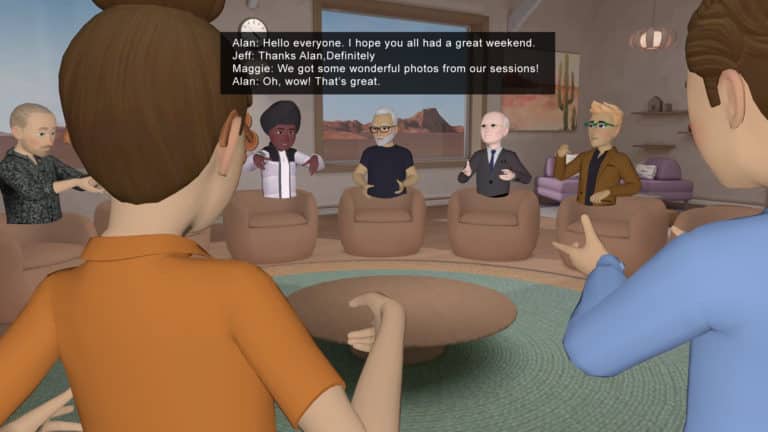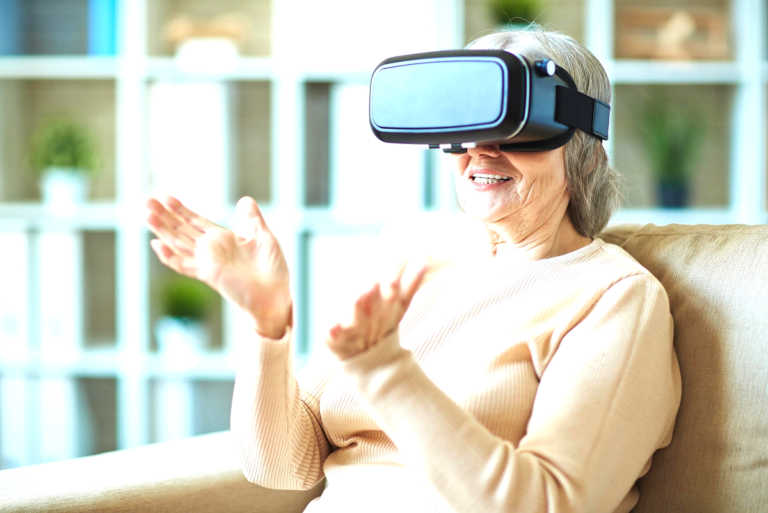Words are powerful and the way we talk to ourselves can have profound effects on self-image, how we interact with others, and how we handle life’s stressors. And even if we understand the value of compassionate words, we may find it much easier to extend them to family, friends, and strangers than to ourselves.
Our internal voice can be overly harsh and critical at times, but for those suffering from depression, that negative self-talk can lead to a debilitating cycle that is difficult to escape. A recent Science Focus article on VR’s impact on mental health highlights a recent study that seeks to dampen this voice. Professor John King and Dr Emma Jayne Kilford at University College London are creating a virtual reality intervention that supplements face-to-face therapy with the goal of strengthening one’s ability for self-compassion.
The intervention consists of a virtual room that includes two avatars – a child and an adult. The avatars can be designed to look like the participant presently and as they looked in childhood. Before entering the virtual room the participant learns a “compassion script” that includes three strategies to improve the mood of someone in distress – validating experience, redirecting attention, and activating a positive memory. The participant then enters the room in the role of the adult with the task of speaking to the child until the child’s distress is lessened.
Next the participant enters the room as the child and watches the play-back of the avatar representing their adult self. As the child avatar, the participant is experiencing receiving compassionate words from his/her adult “self”.
A larger trial is now taking place, based on initial results of a sample of very self-critical or depressed patients. The initial results are promising, showing a reduction in depression and self-criticism and improvement in self-compassion.
Foretell Reality can not only create scenarios for practicing self-compassion but as a multi-user platform, we can create role-play scenarios with other participants to increase empathy, which is fundamental to implicit bias and other types of training or therapy exercises.









